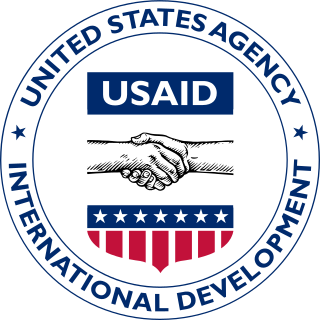
The United States Agency for International Development (USAID) is an independent agency of the United States government that is primarily responsible for administering civilian foreign aid and development assistance. With a budget of over $50 billion, USAID is one of the largest official aid agencies in the world and accounts for more than half of all U.S. foreign assistance—the highest in the world in absolute dollar terms.

Development aid is a type of aid given by governments and other agencies to support the economic, environmental, social, and political development of developing countries. It is distinguished from humanitarian aid by aiming at a sustained improvement in the conditions in a developing country, rather than short-term relief. The overarching term is foreign aid. The amount of foreign aid is measured though official development assistance (ODA). This is a category used by the Development Assistance Committee (DAC) of the Organisation for Economic Co-operation and Development (OECD) to measure foreign aid.
The Royal Norwegian Ministry of Foreign Affairs is the foreign ministry of the Kingdom of Norway. It was established on June 7, 1905, the same day the Parliament of Norway (Storting) decided to dissolve the personal union with Sweden.
Danish International Development Agency (DANIDA) is the brand used by the Ministry of Foreign Affairs of Denmark when it provides humanitarian aid and development assistance to other countries, with focus on developing countries. There is no distinct Danida organisation within the Ministry.

An export credit agency or investment insurance agency is a private or quasi-governmental institution that acts as an intermediary between national governments and exporters to issue export insurance solutions and guarantees for financing. The financing can take the form of credits or credit insurance and guarantees or both, depending on the mandate the ECA has been given by its government. ECAs can also offer credit or cover on their own account. This does not differ from normal banking activities. Some agencies are government-sponsored, others private, and others a combination of the two.
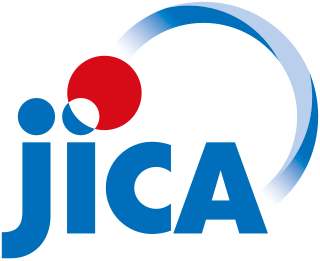
The Japan International Cooperation Agency, also known as JICA, is a governmental agency that delivers the bulk of Official Development Assistance (ODA) for the government of Japan. It is chartered with assisting economic and social growth in developing countries and promoting international cooperation. According to the OECD, Japan's total official development assistance (ODA) increased in 2022 due to an increase in its bilateral lending, which included support to Ukraine. ODA represented 0.39% of gross national income (GNI). The OECD's Development Assistance Committee published a peer review of Japan's development cooperation in October 2020. JICA was led by Shinichi Kitaoka, the former President of the International University of Japan, from 2015 to 2022. On 1 April 2022, Professor Akihiko Tanaka assumed the presidency.

The Federal Ministry for Economic Cooperation and Development, abbreviated BMZ, is a cabinet-level ministry of the Federal Republic of Germany. Its main office is at the former German Chancellery in Bonn with a second major office at the Europahaus in Berlin.

Australian Aid is the brand name used to identify projects in developing countries supported by the Australian Government. As of 2014 the Department of Foreign Affairs and Trade (DFAT) has been responsible for Australia's official development assistance to developing countries.

The Swiss Agency for Development and Cooperation (SDC) is an office-level agency in the federal administration of Switzerland, and a part of the Federal Department of Foreign Affairs. Together with other federal offices, SDC is responsible for overall coordination of Swiss international development activities and cooperation with Eastern Europe, as well as humanitarian aid.
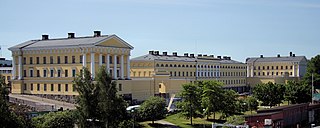
The Ministry for Foreign Affairs (MFA) is a ministry in the Finnish Government and is responsible for preparing and implementing the government's foreign policy.

The Directorate-General for International Partnerships is the European Commission department responsible for international development policy. It operates under the authority of the European Commissioner for International Partnerships, currently Jozef Síkela.

The Organisation for Economic Co-operation and Development's (OECD) Development Assistance Committee (DAC) is a forum to discuss issues surrounding aid, development and poverty reduction in developing countries. It describes itself as being the "venue and voice" of the world's major donor countries.
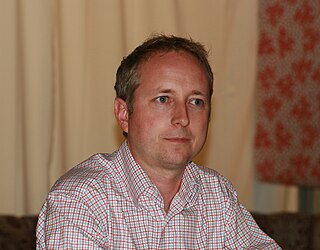
Bård Vegar Solhjell is a former Norwegian politician for the Socialist Left Party. He served as Minister of Education from 2007 to 2009, and as Minister of the Environment from 2012 to 2013, both in Stoltenberg's Second Cabinet. Starting in March 2018, he is the Secretary General of WWF Norway.

The New Zealand Aid Programme is the New Zealand Government's international aid and development agency. The New Zealand Aid Programme is managed by the Pacific and Development Group in the New Zealand Ministry of Foreign Affairs and Trade (MFAT). Previously a semi-autonomous body known as the New Zealand Agency for International Development (NZAID), it was reintegrated back into MFAT as the International Development Group following a restructure in 2009. Its Māori name is Nga Hoe Tuputupu-mai-tawhiti – the paddles that bring growth from afar. The Head of the New Zealand Aid Programme is Jonathan Kings, a lawyer and public servant. According to the OECD, New Zealand’s total official development assistance (ODA) decreased in 2022 due to fewer disbursements within its three-year budget cycle and represented 0.23% of gross national income (GNI).
The EEA Grants and Norway Grants represent the contributions of Iceland, Liechtenstein and Norway to reducing social and economic disparities in the European Economic Area (EEA) and strengthening bilateral relations with 15 EU countries in Central and Southern Europe. Through the Grants, Iceland, Liechtenstein, and Norway are also contributing to strengthening fundamental European values such as democracy, tolerance and the rule of law.
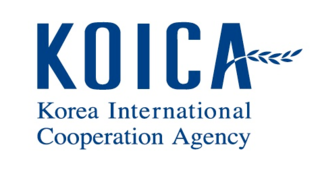
The Korea International Cooperation Agency was established in 1991 by the Ministry of Foreign Affairs of South Korea as a governmental organization for Official Development Assistance (ODA). KOICA's goal is to enhance the effectiveness of South Korea's grant aid programs for developing countries by implementing the government's grant aid and technical cooperation programs. KOICA is led by three-year-term president of the board who is appointed by the President upon the recommendation of Foreign Minister.
Chinese foreign aid may be considered as both governmental (official) and private development aid and humanitarian aid originating from the People's Republic of China (PRC).

Irish Aid is the Government of Ireland's official international development aid programme. Irish Aid is managed by the Development Co-Operation and Africa Division (DCAD) of the Department of Foreign Affairs (DFA). According to the OECD, Ireland’s total ODA increased in 2022, mostly due to higher in-donor refugee costs and higher contributions to international organisations. ODA represented 0.64% of gross national income (GNI). The Irish Aid programme is an integral part of Ireland's foreign policy.














